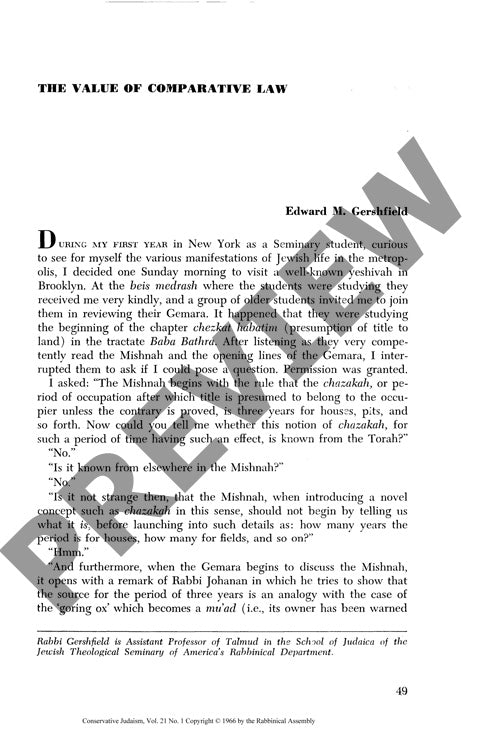The Value of Comparative Law
Couldn't load pickup availability
When medieval Jewish scholars restricted their legal inquiries to pre-established commentarial questions, they inadvertently paralleled similar limitations in European law schools - a methodological constraint that continues to influence modern Jewish legal education. Through comparative analysis of Jewish and Roman legal systems, particularly examining parallel institutions like *peculium/segullah* (property ownership) and *specification/shinuy* (object alteration), profound insights emerge about the underlying assumptions and theoretical foundations of Jewish law. Beginning with a personal investigation into the Talmudic concept of *chazakah* (presumptive title) and its relationship to Roman precedents, this research advocates for moving beyond traditional yeshiva scholasticism toward broader analytical frameworks. Drawing extensively on Boaz Cohen's collected essays on Jewish and Roman law, the analysis reveals that comparative methodology's greatest value lies not in establishing direct influences between legal systems, but in illuminating each system's distinctive characteristics. Such comparative approaches prove essential for developing comprehensive scientific literature on Jewish law while addressing contemporary needs, including applications in modern Israeli jurisprudence. The methodology compares Jewish legal concepts with contemporary Roman law through case studies, demonstrating how parallel institutions evolved within different legal contexts.

More Information
-
Physical Description
-
Publication Information
Published 1966
ISBN
-
Publication Credits
Edward Gershfield

